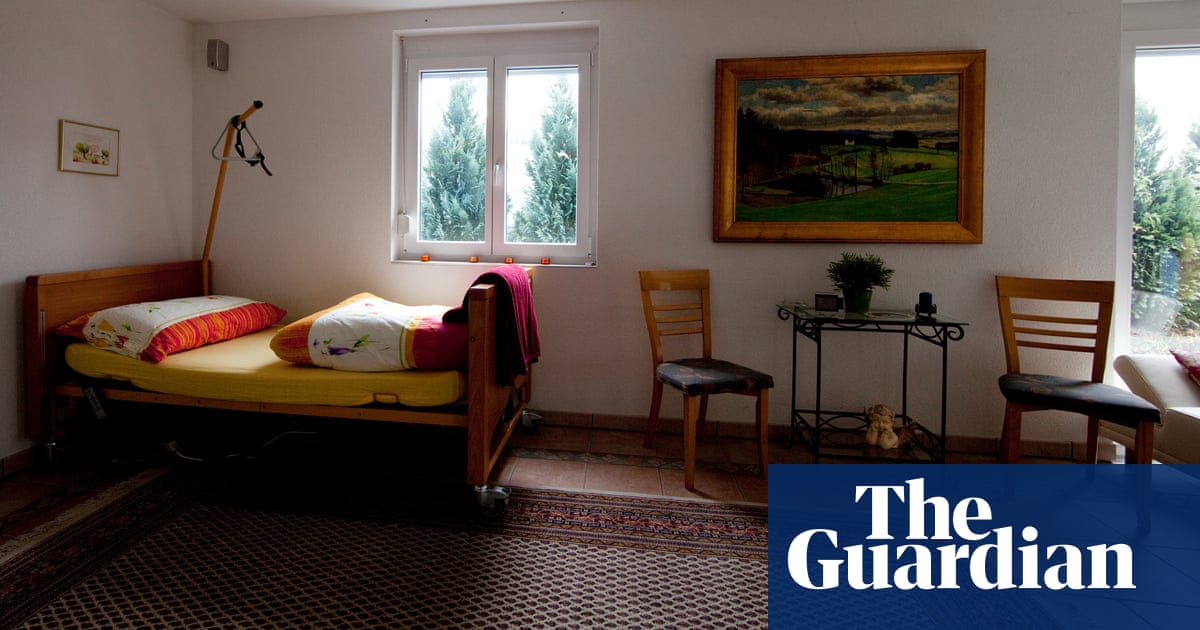
The assisted dying organisation Dignitas has told parliament “it’s about time” to legalise the practice in the UK and make it available alongside palliative care, describing the current rules as “inadequate and incoherent”.
Silvan Luley, a team member at the Swiss organisation, told a House of Commons assisted dying investigation his organisation had helped 540 British people kill themselves – more than one in seven of all deaths it had enabled. The process costs about £10,000.
“It’s about time to change [the law in the UK] so that people will feel safe, doctors will feel safe, and then things will improve considerably,” Luley told the cross-party health and social care committee.
Dignitas would also prefer British people to take their own lives at home, the MPs were told. Prof Samia Hurst-Majno, a member of the Swiss biomedical ethics advisory commission, said most people preferred not to go to a hospital to die, let alone travel to another country.
Assisted dying is illegal in the UK, but Luley said “people in the UK would be happy” to have access to what he described as “the last human right”. He claimed many UK doctors were in favour of assisted dying and said “it’s happening anyway”.
Bernhard Sutter, the director of Exit, a Swiss assisted dying society, said many British people travelled to Switzerland to die because they did not want to die sedated, which is a common option under UK palliative care.
He said they wanted to be able to “consciously … gather the family … being able to spend one night, [look at] pictures, talk to each other, have a meal together and then say goodbye, take medication, fall asleep”.
Under the Suicide Act 1961 in England and Wales, it is a criminal offence to encourage or assist another person’s suicide. But Crown Prosecution Service guidance says charges are less likely to be needed if the victim reached a voluntary, clear, settled and informed decision and the suspect was wholly motivated by compassion, among other things.
It is for parliament to decide whether assisted suicide should become legal. The MPs’ inquiry has already heard opponents of assisted dying argue that “elder abuse” could be worsened and that wider availability of palliative care must instead be a priority. Supporters have said too many people face “unbearable suffering”, which palliative care alone cannot fix.
Sutter explained that 160,000 members of Exit paid an annual premium of 45 Swiss francs, typically joining at the age of 47. They then had access to free assisted suicide if they needed it and the average age of death was 80. It did not charge because “we do not want to sell death”.
Luley said if a person with chronic severe depression said they wanted to end their life, they would need to see a psychiatrist to assess whether the problem could be treated, or the wish to die was based on “longstanding suffering”. Only then could a “green light” be given for the prescription. The drug rendered the person unconscious in three or four minutes and people on average died after 30 or 45 minutes, he said.
Currently, British people travelling to Dignitas ask their doctors for their medical records before they go. The MP Paul Blomfield suggested doctors were “getting themselves into difficulties with UK law”.
But Luley said it was not illegal to provide medical reports to a patient and said legalisation “will definitely improve conversations between patients and doctors. It will lift a lot of fear and things happening … behind closed doors.
“Many UK medical doctors behind closed doors are pro-assisted dying,” he said. “They just say don’t say it in public, out of fear of repercussions.”












